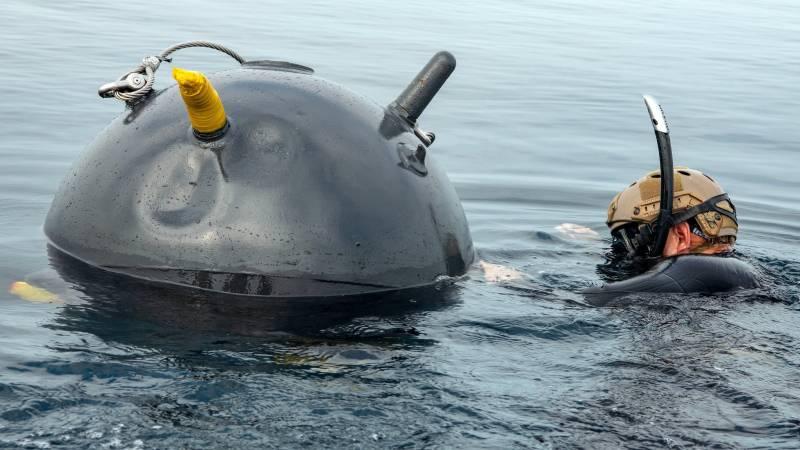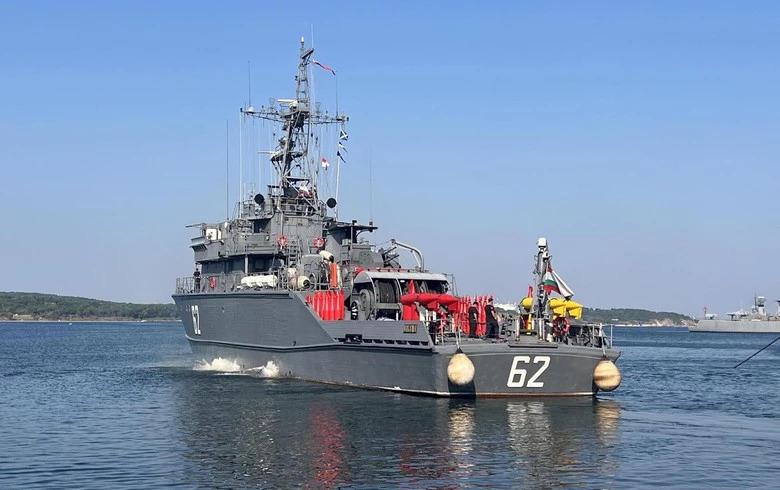Türkiye-Bulgaria-Romania forged a new tripartite alliance in the Black Sea Battle against mines
On January 11, Türkiye, Romania, and Bulgaria signed an agreement on a joint plan to clear mines floating in the Black Sea as a result of the war in Ukraine, following months of talks between the NATO allies. Turkish Defence Minister Yasar Guler, his Romanian counterpart Angel Tilvar, and Bulgaria's Deputy Defence Minister Atanas Zapryanov signed a memorandum of understanding in Istanbul to form a trilateral initiative to clear the explosives.
However, the Turkish Defense Minister underlined the idea that the activities of the MCM Black Sea initiative are not directed against any other country, a caveat in line with Ankara's reluctance to antagonize Russia explicitly.
The move came after several state officials’ statements that mines threaten ports, communication networks, and critical water infrastructure. At the same time, Russia's disdain for the norms of international law and its aggression in the Black Sea undermines regional and global security systems.
Indeed, Sea mines have posed a threat to Ukraine’s Black Sea export routes since Russia’s invasion in February 2022, and several commercial ships have been hit, including a bulk carrier heading to a Danube River port to load grain in December 2023. Ukraine has two main ports on the Danube – Reni and Izmail – which have become central to the country’s grain exports since Russia’s blockade of Ukraine’s Black Sea ports.

Since 2022, the Black Sea has increasingly become a war zone, its waters littered with mines and its skies buzzing with drones and missiles. Some of the mines have since been found in the waters of the three countries, endangering shipping and complicating Ukraine's efforts to break through a Russian naval blockade. Russian attacks have hit targets close to the borders of NATO members Romania and Bulgaria, threatening new shipping routes that have been a lifeline for Ukraine.
The new anti-mine alliance aims to increase the safety and attractiveness of the Black Sea region for tourists and business operations. The idea of creating such a “trilateral initiative” was first aired by NATO defence ministers on October 12, 2023. Bulgarian Defense Minister Todor Tagarev said the aim would be to create a security belt, free from mines, to protect ships carrying Ukrainian exports.
As such, all parties will primarily deploy minesweepers — specially equipped warships that remove or detonate naval mines in large areas — and minehunters, smaller, more nimble vessels that destroy individual mines and can operate in shallow waters.
In this vein, the Bulgarian navy would deploy Soviet-made three Tripartite-class mine hunters and three Sony-class minesweepers; the Romanian naval forces have four Musca-class minesweepers in service, while Türkiye has five Engin-class mine hunters bought from France in 1997, plus six Aydın-class ships.

Although the new pact will increase the safety of Blak Sea passages, it is unlikely that the pact will expand its ranks and include non-NATO countries, namely Ukraine. Ankara would not allow Kyiv to take an active role in the pact due to its existing partnership with Russia and despite its mediator role between Kyiv and Moscow.
In line with this position, Ankara recently indicated that it would not allow two minesweepers that were donated to Ukraine by the UK to transit its waters en route to the Black Sea. To do so would violate the 1936 Montreux Convention, an international pact concerning the wartime passage of the Bosphorus and Dardanelles straits.
Nevertheless, Ankara's decision will unlikely affect its partnership relations with official Kyiv, mainly because the former attempted to revive the Black Sea grain initiative, which Moscow quit last year. However, these talks have shown no public signs of progress. After Russia quit the grain deal in July 2022, Ukraine created a new shipping corridor, which hugs Romania’s 245-kilometer and Bulgaria’s 378-kilometer coastlines on the Black Sea to get its grain to market.
Therefore, Russia's efforts to plant more mines in the Black Sea amid the raging war should come as a little surprise. Although the new tripartite pact will reduce mine incidents, it could barely offer a long-term solution to the current crisis.








